JTL has been applied to several case studies, including benchmarks for bidirectional transformations, real software applications, collaborative modeling, software architectures, etc.
- Hierarchical State Machine to State Machine: the case study refers the Collapse/Expand State Diagrams benchmark defined in the GRACE International Meeting on Bidirectional Transformations: starting from a hierarchical state diagram (involving some nesting), a flat view has to be provided. Furthermore, any manual modifications on the (target) flat view should be back propagated and eventually reflected in the (source) hierarchical view.
- Class Diagrams to Databases:the case study refers the standard UML to RDBMS transformation, which relates uml class diagrams to relational database models.
- Tools Comparison: JTL is compared with other existing bidirectional model transformation language. In particular, the UML2RDBMS transformation has been specified by means of the following tools: i) Medini, which is an implementation of the QVT-R transformation language, ii) MOFLON, which is a framework which bases on Triple Graph Grammars (TGGs), and iii) Boomerang, which is a programming language for writing lenses as bidirectional transformations between XML documents.
- JTL Uncertainty: MM2UMM model transformation, implemented in ATL, to generate Uncertainty metamodels. Futhermore, it containts a related case study that refers the Collapse/Expand State Diagrams benchmark. Finally, it contains the results of the evaluation of the approach.
- JTL Transformations analysis: ASP-based analysis of the UML2RDBMS bidirectional transformation implemented in JTL. The analysis detects non-deterministic rules.
- Collaborative modeling with uncertainty: the BPMN2UBPMN model transformation to generate the BPMN uncertainty metamodels, the Filter model tranformation for managing model with uncertainty. The case study refers to two collaborative modeling scenarios within the Learn PAd project.
- Non-determinism in bidirectional transformations: JTL is compared with other existing bidirectional model transformation approaches. In particular, a non-deterministic scenario based on the UML to RDBMS benchmark has been implemented by means of the following tools: Medini, eMorf, eMOFLON, JTL, Boomerang, Biflux, and GroundTram.
- Families to Persons: the case study proposed in the Transformation Tool Contest (TTC, STAF 2017) is used to show the effectiveness of the JTL traceability management mechanism when dealing with partial and non-injective transformations.
